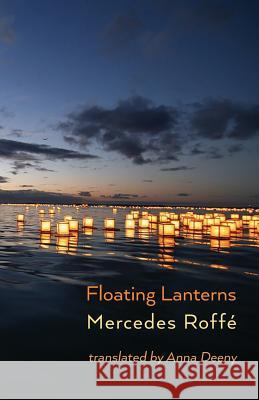Floating Lanterns » książka
Floating Lanterns
ISBN-13: 9781848613720 / Angielski / Miękka / 2014 / 98 str.
Poetry. Latino/Latina Studies. Translated from the Spanish by Anna Deeny. "In FLOATING LANTERNS, her eighth poetry collection, Mercedes Roffe draws from a range of creation myths, sacred texts, philosophy and poetry that meditates upon human nature and our propensity for evil. She brings together Buddhism, Tibetan Yoga, the Judeo-Christian Bible, the Kabbalah, Plato's Republic, T. S. Eliot, Beat poets, the oral traditions of Medieval Spain, and Native North American cosmogonies. What binds these diverse materials is Roffe's use of anaphora. Through anaphora Roffe recalls the process of language building in the face of destruction. When catastrophes level cities, bodies and our loved ones, language too is leveled in our screams. However poetic techniques can remind us of our subjective capacity to construct language again. They offer the possibility, or at least the hope, that a broken language, and from there the broken body, might also be remembered whole even if it is never to be recuperated." Anna Deeny
Anna Deeny has translated poetry by Raul Zurita, Mercedes Roffe, Alejandra Pizarnik, Amanda Berenguer, Nicanor Parra, Gabriela Mistral, Idea Vilarino, Marosa di Giorgio and Malu Urriola. She is the editor and translator of Sky Below, a volume of selected works by Zurita, forthcoming from Northwestern University Press. She has a PhD from the University of California, Berkeley, and teaches at the Center for Latin American Studies at Georgetown University. Deeny is currently writing a book about sound, poetry, and translation."
When Las linternas flotantes (Floating Lanterns) was first published, in 2009, Mercedes Roffé explained that the book was "a reaction to things that left us speechless: September 11, Argentinas economic debacle that led to long?months of national and individual hardship and incertitude, the tsunami,?Hurricane Katrina, and so many things that seemed to come together in just a few years, things? that were so disastrous for the whole world." Like Jeremiah, the prophet of the Book of Lamentations, who mourns the destruction of Jerusalem through the use of acrostics, dirge and communal lament, Roffé, of Sephardic Jewish origins, attends to these "things that left us speechless" through elegy and meditation.











